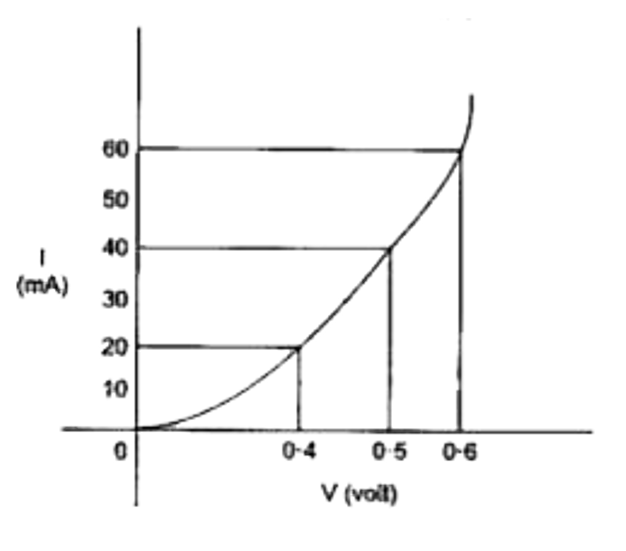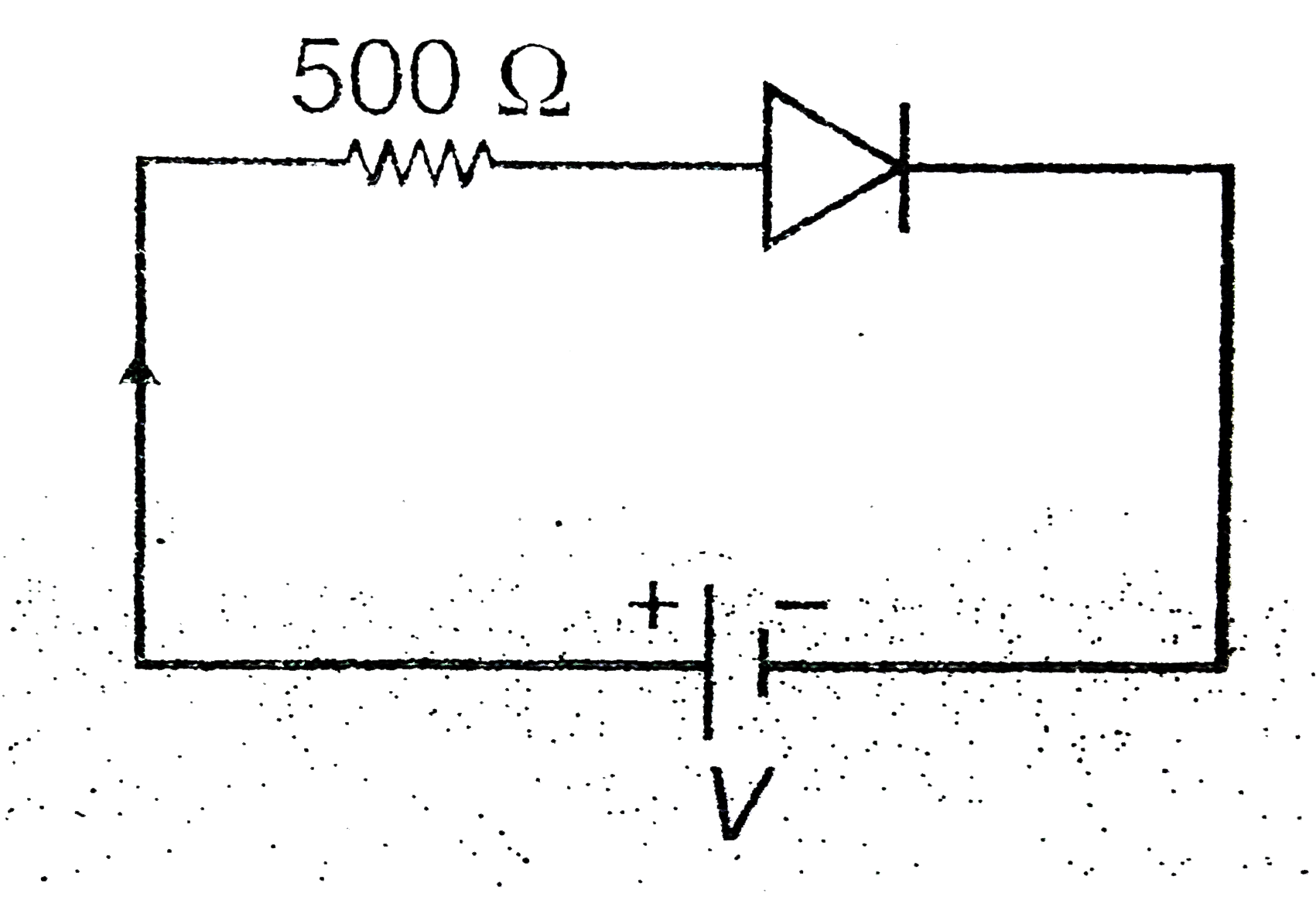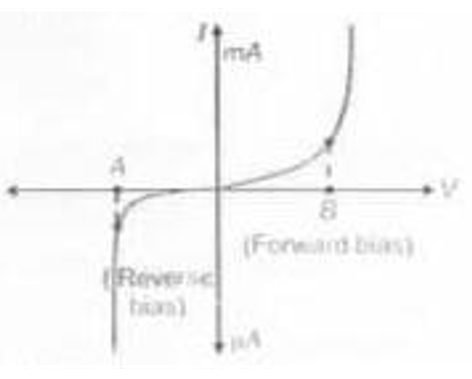The current-voltage characteristic of an ideal p-n junction diode is given by
i=i0(eeV/kT−1)
where the drift current i0equals 10(μ)A.Take the temperature T to be 300K.(a)Find the voltage v0for which eeV/kT=100.One can neglect the term 1 for vlatages greater than this value (b)Find an expression of the dynamic resistance of the diode as a function of V for V>V0.(c)Find the voltage for which the dynamic resistance is 2.0(Ω)
(a) Given that
i=i0(eeV/KT−1)
i≈i0ee(V/KT)
Again that e^(e(V//KT)) = 100<br>rArr (eV)/(kT) = In 100<br>V = (In 100xxkT)/(e)<br> = (2xx8.62xx10^(-5)eVxx300k)/(ek)<br>= 0.51V<br>(b)Giventˆ<br>i = i_0(e^(eV//kT)-1)<br>D⇔erentw.r.t.'q'<br>(di)/(dV) = i_0 (e)/(kT). e^(eV//kT)<br>rArr (1)/(R) = (ei_0)/(kT) e^(eV//kT)<br>rArr R = (kT)/(ei_0) e^(V//kT)<br>(c)UsingR = 2Omega∈aboveexeperssion<br>2 = (8.62xx10^(-5)xx eVxx300k)/(ek) e^(-eV//8.62xx300k)<br>⇒V=0.25V
Topper's Solved these Questions
- SEMICONDUCTOR AND SEMICONDUCTOR DEVICESBook:HC VERMA ENGLISHChapter:SEMICONDUCTOR AND SEMICONDUCTOR DEVICESExercise:Question for short answer
Explore 11 Videos
- SEMICONDUCTOR AND SEMICONDUCTOR DEVICESBook:HC VERMA ENGLISHChapter:SEMICONDUCTOR AND SEMICONDUCTOR DEVICESExercise:objective II
Explore 8 Videos
- PHOTOMETRYBook:HC VERMA ENGLISHChapter:PHOTOMETRYExercise:All Questions
Explore 38 Videos
- SPEED OF LIGHTBook:HC VERMA ENGLISHChapter:SPEED OF LIGHTExercise:Question for short Answer
Explore 5 Videos
Similar Questions
Knowledge Check
When the voltage drop across a p.n junction diode is increased from 0.65V to 0.70V, the change in the diode current is 5mA. What is the dynamic resistance of the diode?
A5ΩB10ΩC20ΩD25Ω
The forward characteristic curve of a junction diode is shown in figure below:

Calculate the resistance of the diode at:
y= 0.5V
View Solution_S01_049_Q01.png)
If current in given circuit is 0.1 A then calculate resistance of P-N junction.
View SolutionWhen the voltage drop across a p-n junction is increased from 0.80 V to 0.82 V, the change in the diode current is 20 mA. What is the dynamic resistance of the diode ?
View SolutionConsider a p-n junction diode having the characteristic i=i0(eeV/kT−1)where i0=20(μ)A. The diode is operated at T=300K. (a) Find the current through the diode when a voltage of 300 mV is applied across it in forward bias, (b) At what voltage does the current double?
View SolutionIn a P-N junction , for a 0.2 V change in the forward bias voltage, the corresponding change in current is 20 mA. The dynamic resistance of the P-N junction is
View SolutionIn the given circuit the voltage drop across the diode is 0.8 V, if the diode can withstand current upto maximum of 30 mA, then find the maximum voltage of the battery

View SolutionIn V-I characteristics of a p-n junction diode, why is the current under reverse bias almost independent of the applied potential upto a critical voltage?
View Solution


